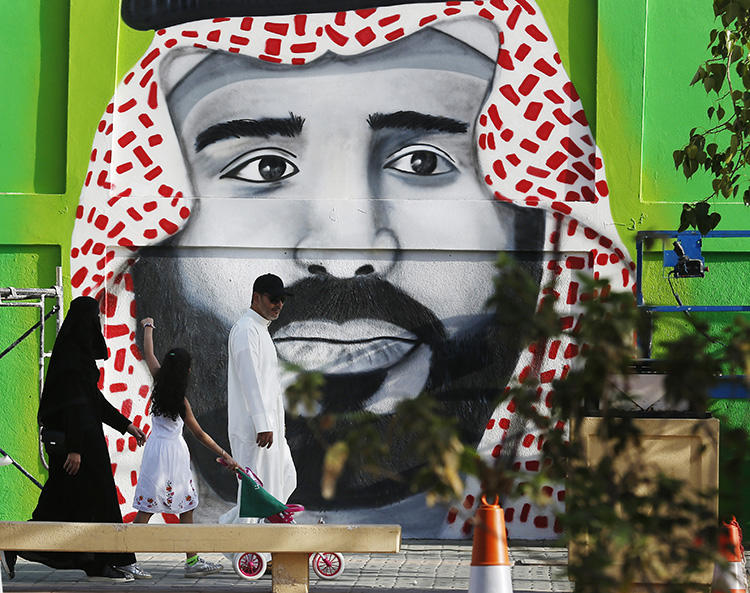New York, November 27, 2019 – The Saudi Arabian government must immediately end its arrest campaigns against journalists and free all those who have been jailed for their writing, the Committee to Protect Journalists said today.
From November 16 to 21, Saudi authorities arrested at least seven journalists, bloggers, and columnists, according to reports by The Associated Press and London-based human rights group Al-Qst. Saudi authorities have not publicly stated any reasons for the arrests, which included many who have not published in recent years.
“Under Crown Prince Salman, anyone in Saudi Arabia who so much as thinks about reporting or writing can find themselves in a prison cell,” said CPJ Middle East and North Africa Senior Researcher Justin Shilad. “Saudi authorities must immediately end their brutal crackdown, and the international community must cease business as usual with a government bent on imprisoning journalists.”
On November 16, authorities arrested Bader al-Rashed and Suleiman al-Nasser at their homes in Riyadh, and Abdulmajeed al-Buluwi at his home in Medina, according to Al-Qst. Authorities also confiscated al-Rashed and al-Nasser’s laptops and cell phones and took an unspecified mobile device from al-Buluwi, according to that report.
Al-Rashed maintained his own blog and wrote for outlets including the London-based al-Hayat newspaper and al-Arabi al-Jadeed website, the U.S.-based website al-Monitor, and Saudi newspaper al-Riyadh and broadcaster al-Arabiya. He wrote about Islam and Saudi and regional politics, and criticized the Kingdom’s move toward establishing closer ties with Israel, according to CPJ’s review of his writing. CPJ was unable to find examples of his writing since January 2018.
Al-Nasser published articles on al-Rashed’s blog, most recently in 2016; CPJ was unable to find other examples of his writing. He wrote essays on apolitical philosophical topics, according to a CPJ review of his work.
Al-Buluwi also maintained his own blog, where he wrote about regional politics and wrote in support of the 2011 uprisings in the region. He wrote for al-Monitor about Saudi and regional politics, including a piece criticizing the use of Saudi anti-terror laws to crack down on peaceful dissidents and freedom of expression. CPJ was unable to find examples of his work published after August 2014.
On November 18, authorities arrested Abdulaziz al-Hais at his home in Hail, according to Al-Qst. Al-Hais previously worked for Qatari broadcaster Al-Jazeera, and he published several articles on their website and at al-Arabi al-Jadeed about the Arab Spring protests and the role of intellectuals in the region, according to CPJ’s review of his writing and a report by the Financial Times. CPJ was unable to find examples of his work published after late 2014.
On November 20, authorities arrested Abdulrahman al-Shehri in Riyadh and raided his home in Abha, according to Al-Qst. Al-Shehri wrote for Al Jazeera’s website, including an article analyzing the blogging landscape in Saudi Arabia and the challenges of writing in a repressive environment, but which stopped short of directly criticizing the government. CPJ was unable to find examples of his work published after August 2016.
On November 21, authorities arrested Fouad Ahmed al-Farhan at his home in Jeddah, according to Al-Qst. Al-Farhan had previously maintained a blog and was known as one of the few bloggers in Saudi Arabia willing to criticize government officials and support detainees while writing under his own name, according to CPJ reporting from 2007, when he was previously arrested.
According to the AP, al-Farhan had stopped writing about politics years ago and had founded an online platform to educate Saudis on Crown Prince Salman’s Vision 2030 reform plan.
His business partner, Musab Fouad, was also detained by authorities, according to Al-Qst and the AP. Al-Buluwi and al-Rashed had also worked in support of Vision 2030, according to AP.
Saudi authorities also arrested Zana al-Shehri, according to Al-Qst. CPJ could not determine the exact dates of her arrest. Al-Shehri wrote for the online magazine al-Asr, and in 2013 wrote a piece advocating for a transition to a constitutional monarchy in Saudi Arabia. CPJ was unable to find examples of her work published after 2014.
CPJ is also investigating the arrest of Maha al-Rafidi. Al-Rafidi is an intern for Saudi newspaper al-Watan who advocated for detained Saudis and for Palestinian rights on Twitter, and was arrested recently, according to a report by independent Arabic-language website Raseef22. CPJ could not determine the exact date of her arrest, or whether it was connected to her work as a journalist.
CPJ emailed the spokesperson of the Saudi embassy in Washington, D.C., for comment but did not immediately receive a response.
CPJ earlier this year reported on a similar wave of arrests targeting bloggers and journalists who had not been active in the past few years, amid a renewed crackdown on dissent under Crown Prince Mohammed bin Salman. At least 16 journalists were imprisoned in Saudi Arabia as of December 1, 2018, according to CPJ research.
Saudi authorities also continue to evade responsibility for the murder of Jamal Khashoggi inside the Saudi Consulate in Istanbul. A June report by UN Special Rapporteur on Extrajudicial, Summary, or Arbitrary Executions Agnes Callamard said that Khashoggi’s killing was “an extrajudicial killing for which the State of the Kingdom of Saudi Arabia is responsible.”
